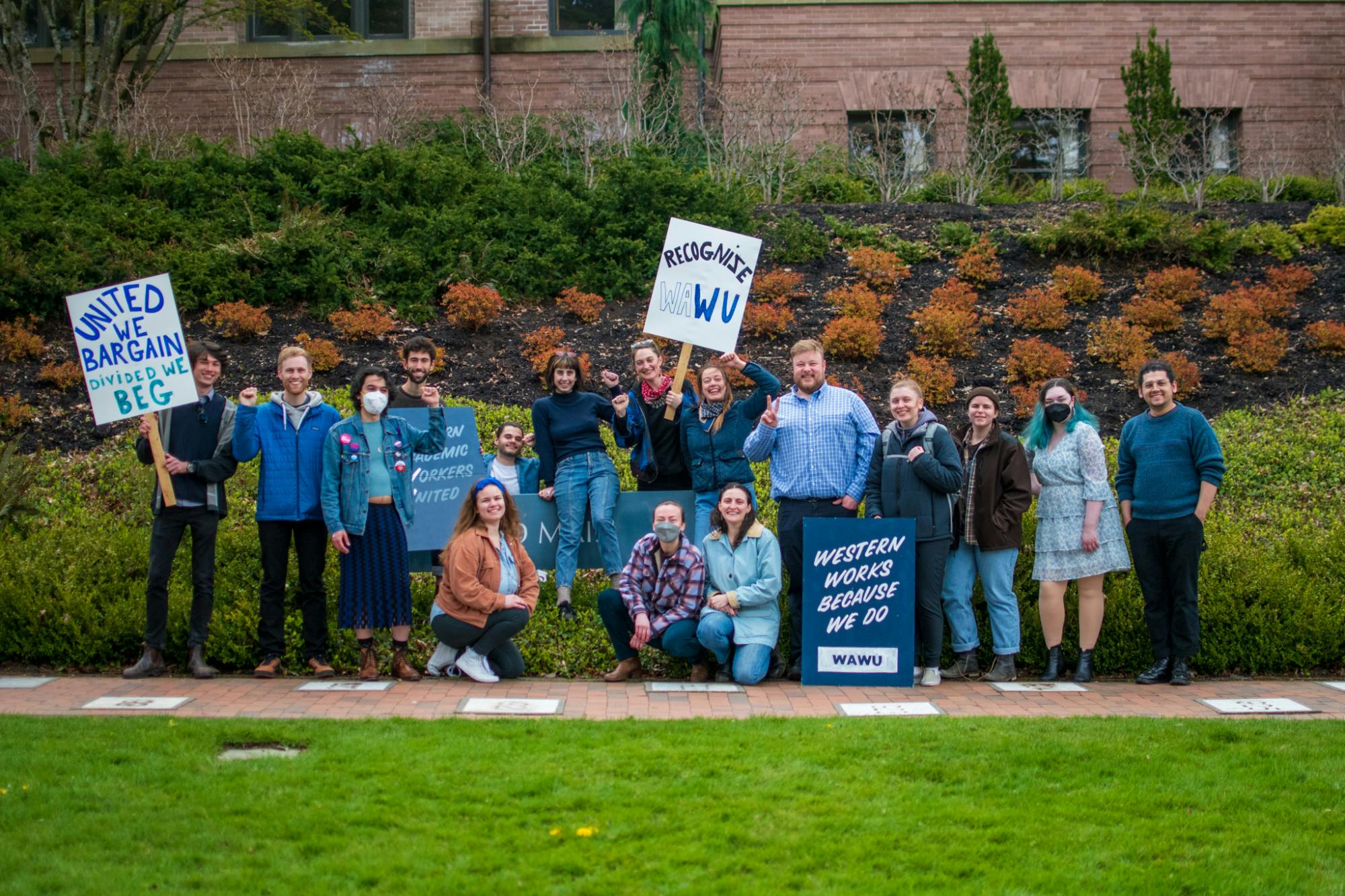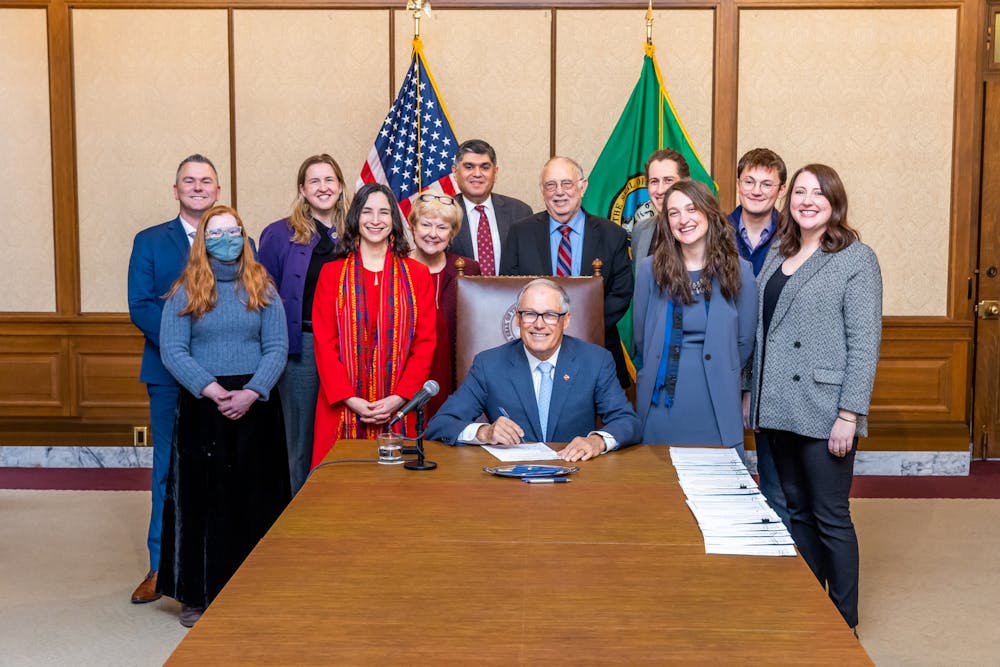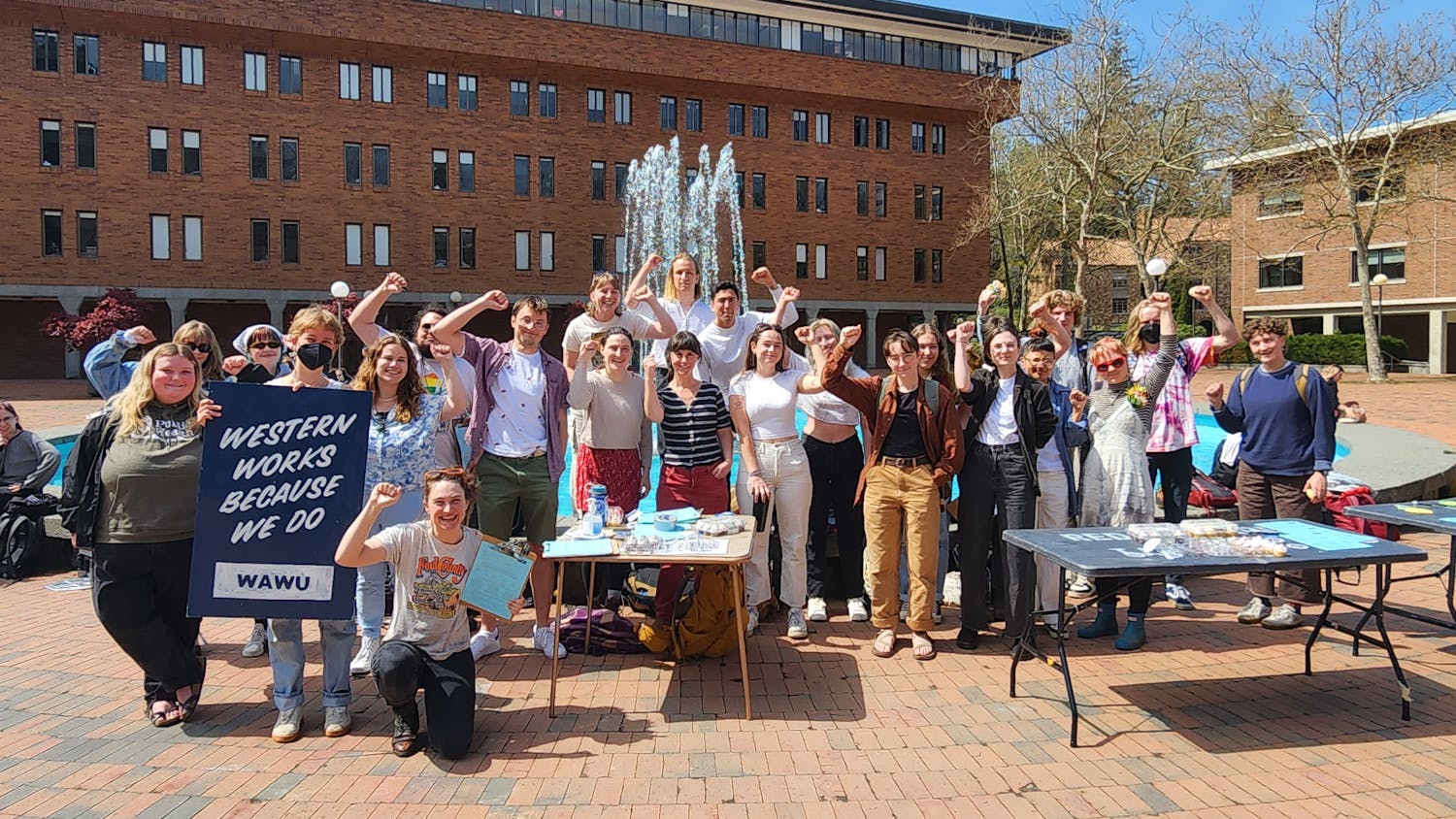Western Washington University educational student employees are just weeks away from achieving unionization status after originally filing to unionize under Western Academic Workers United - UAW in December 2022.
WAWU elected to join The International Union, United Automobile, Aerospace and Agricultural Implement Workers of America, UAW. This union also represents student workers at The University of Washington and Washington State University.
Of the more than 400,000 UAW members, 100,000 of those are workers in higher education, making it the largest academic student union in the country.
In late May, Western ESEs will receive an email where they will be able to vote on unionization. The election will be conducted by the Washington State Public Employment Relations Commission and if the vote passes, official union certification will be achieved.
The initial response from Western administration in December was disappointing to many WAWU members.
“Western’s response to that was basically that there was no law that says that they had to bargain with us, nothing that would force them,” said Lexy Aydelotte, a WAWU organizer and graduate student who was a TA in the history department until winter quarter 2023.
Aydelotte believes that the university had the power to bargain with WAWU right away, especially when considering Western’s advertisement of their core values of access, diversity, equity and inclusion across all departments and services.
“Thinking about all of the people who can't be here because the university cannot provide a living wage and fair working conditions, but then to see them still parading around their equity and inclusion banners – it feels like a slap in the face honestly,” said Willa Rowan, a current graduate student TA in Science Math and Technology Education and WAWU member.
When Western administration refused to bargain, WAWU began work to pass statewide legislation outlining their union rights. Since December 2022, WAWU members have met with legislators, worked with United Auto Workers to draft the language of the bill, sent out letter campaigns and traveled to Olympia to testify at hearings.
On April 20, SB 5238 was passed by Gov. Jay Inslee. The bill outlines collective bargaining for all academic employees at regional colleges and universities in Washington state, which includes Western Washington University, Central Washington University, Eastern Washington University and The Evergreen State College.
“I think it's truly a testament to the incredible amount of determination and ambition and commitment to themselves and their communities that Western students have to get this law passed,” said Aydelotte.
With the passing of this bill, Western now has a legal obligation to bargain a contract with ESEs.
“My narrative will always be there is mutual benefit to having a union contract,” said Lily Rayor, a fourth-year Western student who sits on the bargaining committee for ESEs. “If we can get on the same page as Western, we can be lobbying for the same things, we can be asking the state for more money for our college.”
Since the legislation has been passed, Western now recognizes WAWU as an unofficial union.
“WWU recognizes that the petitioned-for employees have organizing rights,” said Liz Parkes, Western Associate Vice President of Human Resources, in an email statement. “In fact, we are currently in the midst of working to confirm the bargaining unit description and toward running an electronic ballot election.”
Once WAWU achieves official union recognition, they hope to start negotiating their first contract right away. They have elected a bargaining committee and have been speaking with student employees and handing out collective bargaining surveys to understand specific issues student workers want to see addressed in their contract.

One of the many issues that WAWU hopes to tackle when they finally have a seat at the table is wages.
“The majority of us are being paid minimum wage, which I think is an unlivable wage in Bellingham,” Aydelotte said. “Students are having to take on multiple jobs off-campus in order to be able to afford to take on student debt.”
Many students are spending the majority of their paycheck on rent on top of student loan debt, Rowan said.
TAs for field courses also face issues when they are not fully compensated for the amount of time they spend working.
“They're off in the field essentially working whenever they're awake,” Rowan said. “The way that they get compensated for that time spent doesn't really have equity with the TA appointments that you might have at school where you're just coming into campus and teaching.”
Many field courses also require that students have their own gear, Rowan said. Not only is proper gear expensive, but field research can cause a lot of wear and tear, causing it to need replacement.
Proper training is also an important issue for educational employees. Teaching training can be anywhere from one week to none at all depending on the department.
“That has real effects for those [TAs] but also for their students,” said Chris Reid, a TA in the English department and a member of the WAWU bargaining committee. “You're not being taught how to teach and what good teaching looks like and how to care about what's going on pedagogically in the classroom. None of that happens.”
Western students’ calls for unionization are not unique. Student workers at universities across the United States are rallying for bargaining rights to gain higher wages and better working conditions. In Washington state, academic workers at Washington State University are represented under WSU-CASE.
“With collective bargaining, [Academic Student Employees] set our own priorities and our own agenda—and we elect peer ASEs as representatives to negotiate on equal footing with WSU administrators for improvements such as salary increases, improvements to health insurance, anti-discrimination and harassment protections, parental leave and much more,” said Carla De Lira, who is a research assistant and Ph.D. candidate at WSU and a member of Transit & Parking workgroup for WSU-CASE, in an email.
“At WSU we are currently bargaining our first-ever contract. We finally have an equal say in our working conditions,” De Lira said.
WAWU has also worked closely with members of UAW 4121, which has been a successful academic student employee union at the University of Washington since 2004.
“I really think that student debt has been used to police student activism,” Aydelotte said. “Students aren't apathetic, students are angry, and they're getting organized – and they are preparing to make change.”
Aydelotte points out that the age and status of student workers often result in their work being devalued.
“I think that there's a resounding push all over the country from student workers saying that they do matter,” Aydelotte said. “They do have power, and they do want fair and equal treatment. And I think it's so exciting that Western is leading this front.”
Ava Glaspell (she/her) is a campus news reporter for The Front this quarter. She is a first year journalism/news ed major. Outside of reporting, Ava enjoys climbing, eating ice cream, and jumping into the ocean. You can reach her at avaglaspell.thefront@gmail.com.






